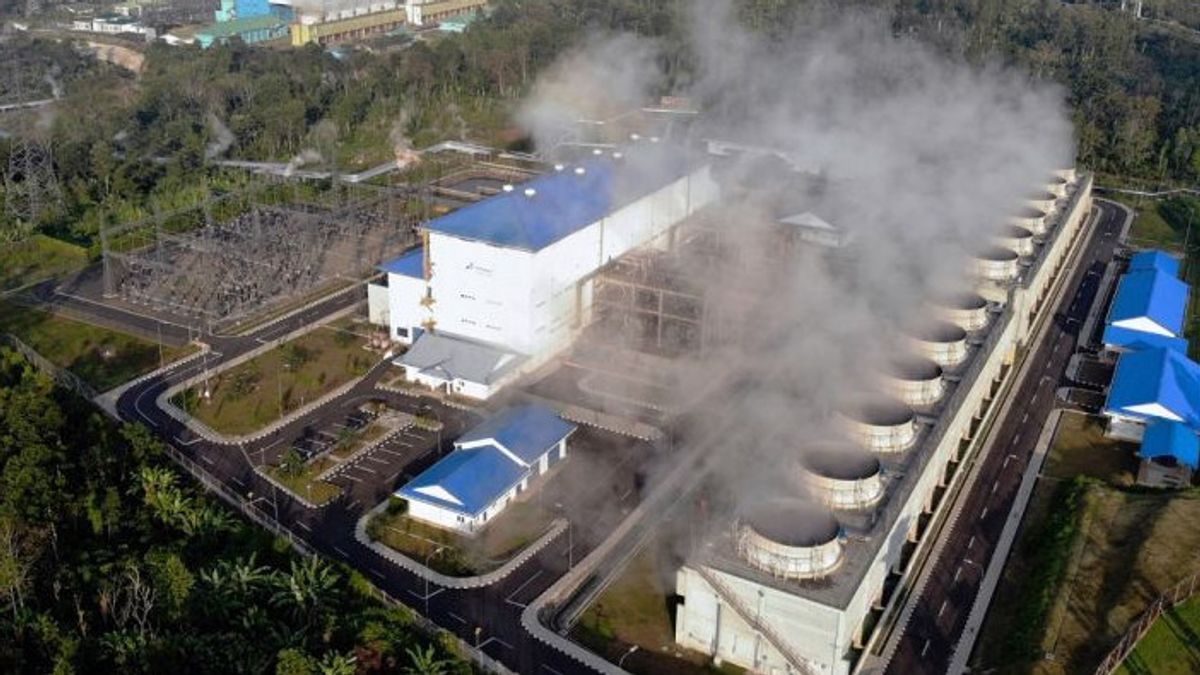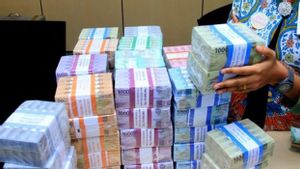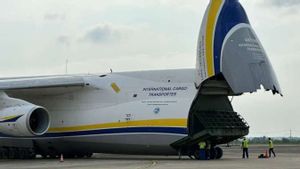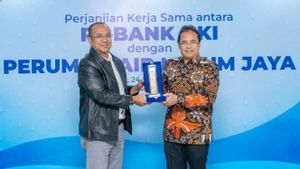JAKARTA - Geothermal energy issuer PT Pertamina Geothermal Energy Tbk (PGEO) has the opportunity to postpone its expansion due to being in debt, causing its liabilities to swell.
On September 30, 2022, corporate debt reached US$1.13 billion, which was dominated by short-term bank loans of US$617.22 million, equivalent to IDR9.3 trillion, assuming an exchange rate of IDR15,088 per US dollar on March 29, 2023.
The debt that will mature in the near future jumped 292.68 percent from the position in December 2021. Under these conditions, a number of analysts assess that PGEO is at risk of failing to expand because it has to pay off its debts.
Panin Sekuritas analyst Andhika Audrey said the US$617 million debt weighed on PGEO's expansion plans.
"There is a change in PGEO's long-term debt to short-term worth US$617 million. This has the potential to erode the company's pockets," he told the media, Thursday, March 30.
In fact, this subsidiary of PT Pertamina (Persero) previously promised funds from an initial public offering (IPO) of IDR 9.05 trillion to expand geothermal working areas (WKP) and pay debts. The composition is 85 percent for WKP expansion and the rest for debt repayments.
"However, due to maturing short-term debt, the expansion opportunity for the construction of the 600 MW installed capacity has the potential to be delayed," said Andhika.
If broken down, the total short-term bank debt consists of loans from PT Bank Mandiri (Persero) Tbk in the amount of US$105 million, MUFG Bank Ltd, Jakarta Branch of US$105 million, and PT Bank UOB Indonesia also US$105 million.
Next, came from PT Bank HSBC Indonesia worth US$82.5 million, Australia and New Zealand Banking Group Limited Singapore Branch US$75 million, PT Bank BTPN Tbk (BTPN) worth US$52.5 million, Sumitomo Mitsui Banking Corporation Singapore Branch worth 52.5 million US dollars, and The Hong Kong and Shanghai Bank Corporation Limited worth 22.5 million US dollars.
SEE ALSO:
Given the large number of creditors involved in this short-term debt, it is considered difficult to achieve the refinancing or restructuring process.
Andhika emphasized that the maturing debt would be a delaying factor in building the company's own installed capacity to 1,200 MW.
The geothermal business, he explained, is also a capital-intensive business and with a relatively short period of time.
"The win rate or ratio of success from drilling to get geothermal energy is still 50:50," explained Andhika.
The English, Chinese, Japanese, Arabic, and French versions are automatically generated by the AI. So there may still be inaccuracies in translating, please always see Indonesian as our main language. (system supported by DigitalSiber.id)















